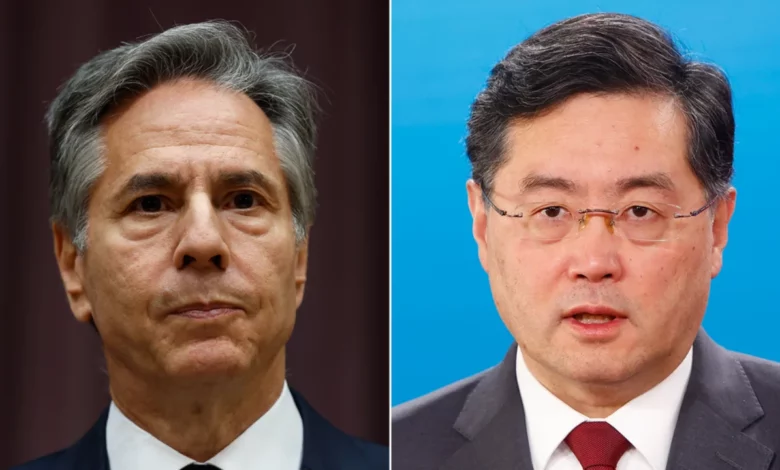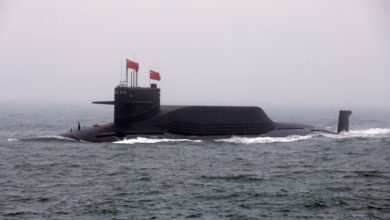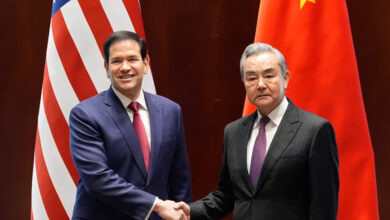
In his call with Qin Gang, Blinken discussed “the importance of maintaining open lines of communication” to responsibly manage US-China relations to “avoid miscalculation and conflict,” US State Department spokesperson Matthew Miller said in a statement.
Blinken also addressed a range of bilateral and global issues, and made clear “the US would continue to use diplomatic engagements to raise areas of concern as well as areas of potential cooperation,” according to the statement.
China’s readout of the call was noticeably more pointed, underscoring the deep distrust that lingers between Beijing and Washington.
Qin told Blinken the US should “show respect” on China’s core concerns such as the Taiwan issue.
Qin also urged the US to “stop interfering in China’s internal affairs” and “stop undermining China’s sovereignty, security and development interests in the name of competition,” according to a statement from China’s Foreign Ministry.
Qin said he hoped the US can meet China halfway, effectively manage differences, and promote communication and cooperation to stabilize bilateral relations and bring ties “back to the track of healthy and stable development.”
The US and Chinese readouts of the phone call made no mention of Blinken’s visit, which has not been officially announced by the US State Department or China’s Foreign Ministry.
Two US officials and a source familiar with the matter told CNN earlier this month that Blinken was expected to travel to China in the coming weeks.
It came after a flurry of meetings between senior US and Chinese officials since last month, and US President Joe Biden’s prediction of a near-term “thaw” in relations with Beijing.
Blinken originally planned to visit China in February as the two countries attempted to stabilize ties following an in-person meeting between their leaders in Indonesia last November.
But the high-stakes trip was postponed over a suspected Chinese spy balloon that flew over the continental US and was later shot down.
Since then, already tense relations between US and China have become palpably more fraught, with issues over Taiwan, the South China Sea and chip export restrictions fueling tensions.
China’s Communist Party claims self-ruled, democratic Taiwan, despite having never ruled it, and has vowed to one day “unite” it with the mainland, by force in necessary.
It also claims historic jurisdiction over almost the entirety of the vast South China Sea and has built up tiny reefs and sandbars into artificial islands heavily fortified with missiles, runways and weapons systems – sparking outcry from the other claimants.
In a veiled criticism, Qin appeared to blame the US for the heightened tensions in recent months in his call with Blinken, according to the Chinese readout.
“Since the beginning of this year, China-US relations have encountered new difficulties and challenges, and the responsibility is clear,” Qin said, adding that China had always handled relations with the US according to the principles of “mutual respect, peaceful coexistence and win-win cooperation” put forward by Chinese leader Xi Jinping.




